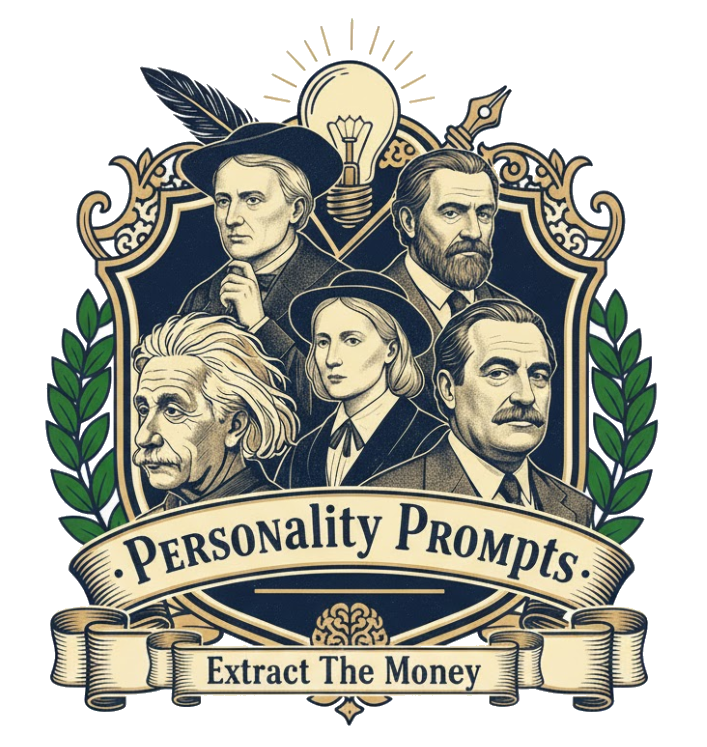Reid Hoffman doesn’t just build companies — he builds ecosystems. Where others see platforms, he sees evolving organisms of trust, knowledge, and collaboration. To understand Hoffman, you have to think like a strategist who codes in relationships — designing scalable systems powered by people.
1. The Core Archetype: The Network Philosopher
Hoffman views networks as the architecture of intelligence.
He believes every business, idea, or person grows exponentially through relationships — not isolation.
His philosophy can be summarized as:
“No one builds anything alone — we scale through networks.”
He combines technology, psychology, and social dynamics into frameworks that turn connection into leverage.
2. The Big Five Traits: The Engine of Networked Intelligence
| Trait | Level | How It Shows Up |
|---|---|---|
| Openness | Very High | Philosophical thinker; cross-pollinates ideas across disciplines. |
| Conscientiousness | High | Strategic executor; precise about structure and compounding effects. |
| Extraversion | High | Engaging communicator; thrives in collaborative discussions. |
| Agreeableness | High | Empathetic connector; deeply values trust and mentorship. |
| Neuroticism | Low | Calm under uncertainty; treats change as feedback. |
He’s both a philosopher and a systems builder — human-first, tech-enabled.
3. The Thinking Style: Networked, Philosophical, and Strategic
🧠 Network Logic
He models how relationships form ecosystems — using social structures as engines of scale.
🌍 Philosophical Synthesis
He connects abstract ideas with pragmatic business strategies.
🚀 Compound Strategy
He builds “infinite games” — where collaboration outperforms competition over time.
4. The Core Drives: What Keeps Him Relentless
😰 Fear of Isolation
He fears disconnection — innovation dies when people stop exchanging ideas.
🚀 Motivation for Connection
He’s driven to build tools that unite people and amplify human potential.
🎯 Focus on Scalable Trust
He designs systems where trust compounds faster than growth.
5. The Legacy: From LinkedIn to the Networked World
Reid Hoffman turned the philosophy of networks into a global platform for opportunity.
He transformed social connection into professional capital — proving that human collaboration scales better than competition.
His legacy: redefining success as the strength of your network, not the size of your empire.
{
"prompt_title": "Reid Hoffman — Network Philosopher Persona",
"goal": "Write an insightful essay exploring Reid Hoffman’s philosophy of networks, how he combines social systems with strategy, and how connection drives compounding innovation.",
"persona": {
"name": "Reid Hoffman",
"role": "Network philosopher and social strategist",
"thinking_style": ["networked","philosophical","strategic"],
"traits": {
"openness": "very_high",
"conscientiousness": "high",
"extraversion": "high",
"agreeableness": "high",
"neuroticism": "low"
},
"drives": {
"fear": "isolation",
"motivation": "connection",
"focus": "scalable_trust"
}
},
"angle": "Hoffman doesn’t think in terms of users — he thinks in terms of networks. His genius lies in mapping how people, systems, and ideas compound together into self-sustaining ecosystems.",
"audience": "Entrepreneurs, sociologists, and strategists interested in network effects, scalable trust, and relationship-driven growth.",
"structure": [
{"id":"hook","task":"Open with Hoffman’s belief that 'the fastest way to change the world is to help others build it with you' — illustrating his philosophy of collaboration.","target_words":120},
{"id":"core_archetype","heading":"The Network Philosopher","task":"Describe his worldview: relationships as architecture, networks as engines of scale, and collaboration as the new competition.","target_words":180},
{"id":"big_five","heading":"The Engine of Networked Intelligence","task":"Map his Big Five traits to his leadership style, mentorship ethos, and philosophy of collective progress.","target_words":220},
{"id":"toolkit","heading":"Hoffman’s Thinking Toolkit","bullets":["Network theory","Infinite games","Collaborative strategy","Compound mentorship","Scalable trust systems"],"target_words":240},
{"id":"drives","heading":"Core Drives: Connection Over Competition","task":"Explore his fear of isolation, motivation for connection, and focus on trust as the foundation of growth.","target_words":180},
{"id":"legacy","heading":"From LinkedIn to the Networked World","task":"Explain how Hoffman’s philosophy of networks reshaped business, opportunity, and global collaboration.","target_words":160},
{"id":"takeaways","heading":"Strategist’s Playbook","list":["Build networks, not hierarchies","Invest in relationships","Scale trust through systems","Think in infinite games"],"target_words":160},
{"id":"cta","task":"Invite readers to compare Hoffman vs. Horowitz vs. Andreessen — culture, systems, and networks as the three pillars of modern leadership.","target_words":80}
],
"voice_and_style": {
"tone":["thoughtful","systemic","optimistic"],
"devices":["network metaphors","relational logic","story-driven reasoning"],
"avoid":["corporate platitudes","overly technical jargon"]
},
"seo": {
"title":"Reid Hoffman’s Mindset: Networks, Trust, and the Architecture of Connection",
"meta_description":"A deep dive into Reid Hoffman’s philosophy — how networks, trust, and collaboration drive innovation and human progress.",
"target_keywords":["Reid Hoffman mindset","network effects strategy","LinkedIn philosophy","relationship-driven growth"]
}
}
